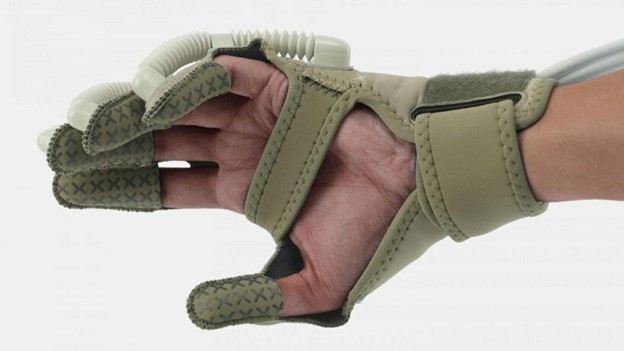
Shenzhen XFT Medical Ltd. (XFT Medical) and U.K. product design and development company Industrial Design Consultancy Ltd. (IDC) have partnered to launch the Hand Rehabilitation Glove, a training device designed to aid patients recovering from strokes or hand disabilities. The neoprene glove combines electromyograph feedback and flexible robotics to support patients in training and repairing dexterity.
Using flexible air-activated muscles to aid movement, the robotic glove targets limb motor function and prevents muscle disuse atrophy, enabling patients to carry out passive rehabilitation training through pre-set training programs. Featuring six distinct training modes, including power-assisted movement and resistance training, the glove offers a versatile approach to muscle strengthening.
Users can complete specific training programs tailored for full hand movement, fingertip touch training, and single finger exercises, promoting both gross and fine motor skill improvement. With size options available the glove ensures a comfortable fit, and its adjustable air pressure mechanism enables personalized strength settings, catering to individual rehabilitation needs.
For the robotic glove, IDC followed an empathetic design process to understand and address the specific requirements of users, many of whom are affected by reduced dexterity and lack caregiver assistance to help use the product. The team recognized that the device must be simple to use, easy to put on using only one hand, leading to the design’s cut-out palm area, fingertip hoods, and supportive wrist strap.
Testing was conducted to optimize the balance between functionality, treatment effectiveness, and user experience, and neoprene was eventually selected for its washability, strength, and comfort. From user testing, IDC found that often the patients had weak wrists making it hard to complete the training, prompting the integration of a wrist strap to enhance usability and treatment effectiveness.
IDC has offices in the U.K. and China. It is known for its expertise and creativity in industrial design, mechanical and electronic engineering.
 TEXTILES.ORG
TEXTILES.ORG


